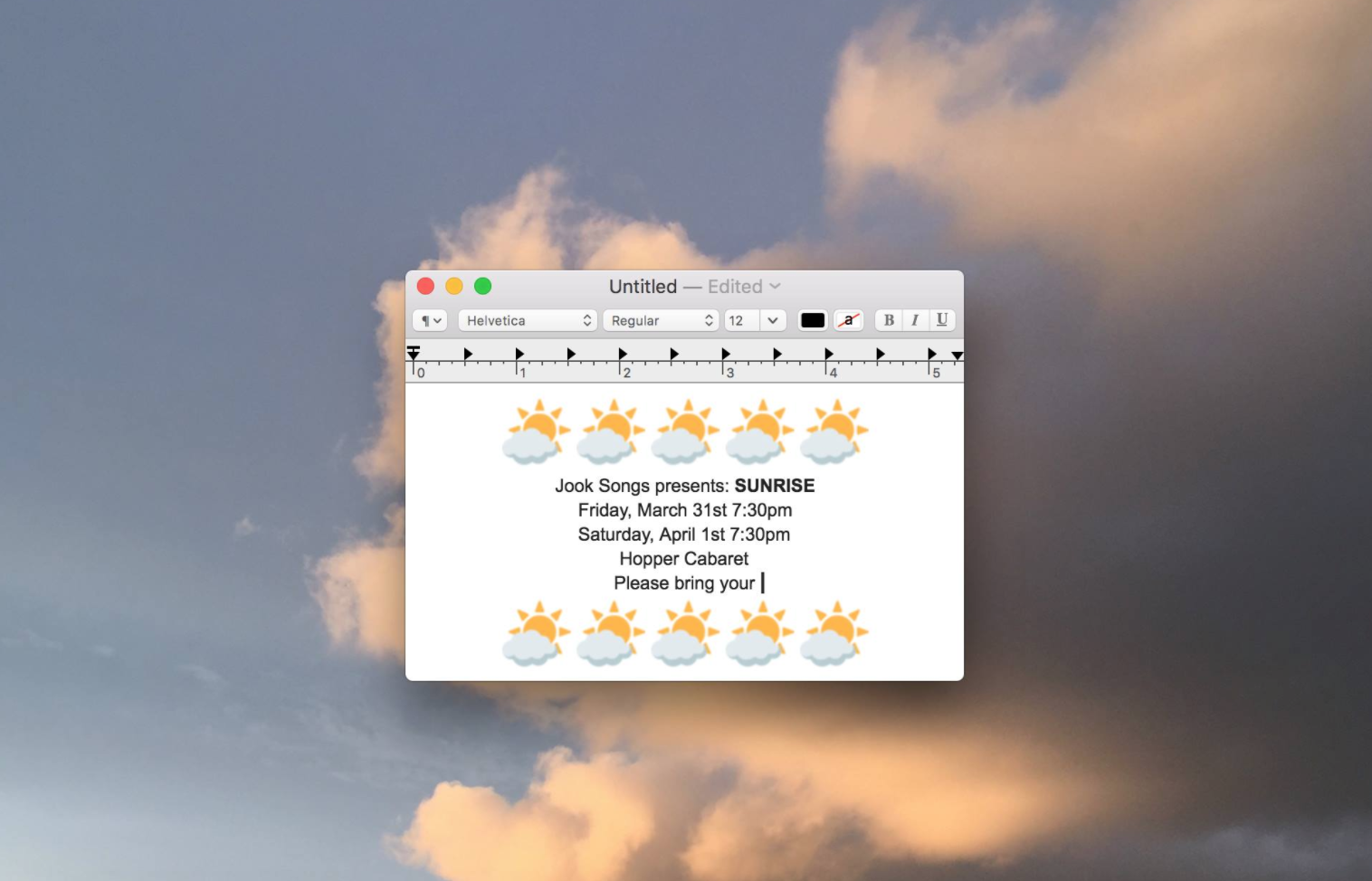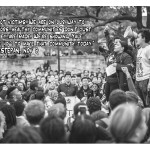by Marina Tinone
Jook Songs, Yale’s Asian and Asian-American spoken word group, performed their last show of the academic year in Hopper Cabaret last weekend. The show’s theme, “Sunrise”, was chosen based on the personal difficulties from their previous semester. This idea of sunrise– of light after times of darkness– developed through each of the performer’s chosen pieces.
“A lot of us had bad semesters last year, or are only recently coming out of tough times,” Claire Sheen (SM 19), Jook Songs’s director, tells me. The show’s producer, Sohum Pal (BR 20), agrees. “[The theme is] fitting, from my perspective. This semester, so far, we had the inauguration, a lot of protests… But now we’re looking at good things that are coming. Like the sun rising at the end of a night.”
And what better place to view this sunrise but the Hopper Cabaret– eye level with the audience, the performers meet their audience on level, equal ground. Physically and psychically, there is no distance between the performers, their listeners, and their evolving words.
On opening night, Victoria Wang (PC 18) began the show clutching a newspaper. Her poem, itself stylized as a newspaper announcement, lamented the death of a raccoon– perhaps signifying an end of an innocence paired with the maturity to move forward.
Skyler Chin (Hopper 19) and Claire Sheen channeled this idea further, focusing on how to move forward within American systems that have held the Asian and Asian American body back. Skyler channeled his inner Hamilton and simulated, via rap, the interrogation transcripts from the Chinese Exclusion Act while Claire compared the invasive Oriental Bittersweet species to the American, noninvasive, variety. Through both performances, Jook Songs pushed “sunrise” not just into the idea of personal maturity, but a fighting spirit to overcome tomorrow’s difficulties.
Kit Lea Cheang (Hopper 19) Sohum Pal (BR 20) subtly moved this fighting spirit into the interpersonal, everyday experiences Asian/Asian American bodies experience in loving (or choosing not to love) others. In describing their experiences of being the object of another’s affection and, on the flipside, objectifying someone you love, the two performers developed the idea of a sunrise and moving on into the idea of letting go.
Prior to the show, Sohum described Jook Songs as “a really loving and nourishing space. “[We focus] on the relationships we’ve built with each other as much as we do on the poetry,” he said. Such a sentiment could not have been clearer with the two closing performers on opening night.
Steph Mao (BR 17) and Sita Sunil (JE 19) finished the opening night’s performance speaking candidly about childhood experiences. Steph, a senior leaving Jook Songs this year, remarked on family histories and approaching adulthood; Sita read a letter to her brother, a senior at Yale. Sita not only thanked him for being her brother, but also affirmed that even in the time and space beyond their shared time at Yale, she knew that together, they would be an “unbeatable team”– they would face their futures together.
Following the show, I spoke with Claire on what this last performance of the year meant to her:
“A lot of us write things that [help us] relate to each other [through] the words and the feelings and memories that are in our pieces,” Claire said. “There’s an understanding there that I think is special. [Jook Songs] is a space that is necessary and important that is carved out. I think that’s part of why the love is so strong within the group. We know that this space isn’t a given.”
Jook Songs’ “Sunrise” carves a new idea of resistance. In reflecting upon their futures, the group posits a new idea of futurity. “Sunrise” is not so much an image as it is a physical location, a place of gratitude where even in darkness, loved ones and past lives will always remind us that our strength comes from the power of our shared history.


